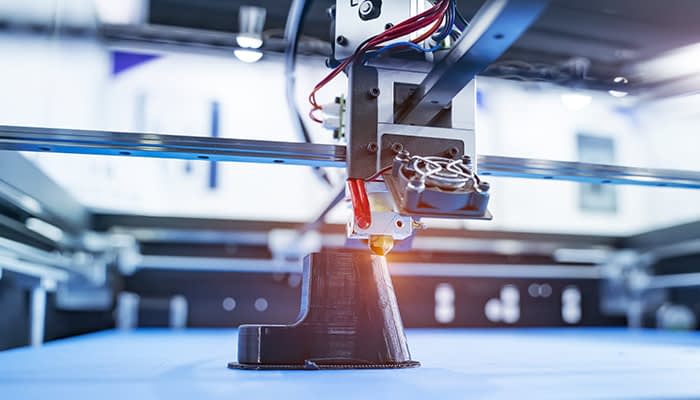Technology is changing the way the Field Service industry works. Businesses are moving away from manual tasks and utilising innovative technology to automate business processes. Technology gives technicians the opportunity to grow their knowledge, exchanging tedious manual tasks for meaningful work. More businesses are relying on Field Service Software and other technologies to streamline processes, boost efficiency and increase their competitive edge to offer customers a superior service.
We've identified a few of the technological solutions that will shape the future of Field Service in 2022 and beyond.

Artificial Intelligence (AI)
- Field Service companies are already using AI to increase efficiency and productivity. AI includes systems and machines programmed to mimic human intelligence, enabling computers to execute problem-solving, boost decision-making and optimise business processes. While some fear the technology will replace field workers, many companies are using AI to support technicians. It eliminates monotonous tasks so technicians can focus on refining their skills and using their knowledge to improve productivity. Field Service Software is an example of AI being used in the industry to automate manual tasks like job scheduling, where the jobs are assigned to technicians based on location, availability, and travel time.
Internet of Things (IoT)
- IoT is set to revolutionise preventative and predictive maintenance for the Field Service industry. IoT is the concept of connecting physical objects to other devices and systems via the Internet with embedded sensors. By connecting a device to the Internet, you can collect and share data, which is advantageous for Field Service companies that operate and maintain multiple machines and equipment. With IoT, you can create an accurate preventative maintenance plan based on real-time data collected from sensors. Real-time data can also be used to save time and resources by performing predictive maintenance only when necessary but before the performance of machines and equipment affect productivity.
3D printing
- Field Service businesses can optimise production and enhance their service by creating the parts and tools they need. If parts aren't in stock or can't be delivered on time, you can use 3D printing to create the components required to complete projects. 3D printing also allows the industry to create custom parts and tools that are expensive, difficult to source or challenging to develop. 3D printing could address these limitations, allowing Field Service businesses to provide services they couldn't offer in the past. 3D printing has become more accessible and affordable, making it a viable investment for Field Service companies.
Wearable technology
- Wearable technology includes any electronic technologies that can be physically worn or embedded in clothing and accessories. In the Field Service industry, wearable technology can improve a team's first-time fix rate (FTFR), reducing errors and enhancing the quality of the service offered. Devices like smart glasses, smartwatches, smart clothing, and head-mounted displays (HMDs) can display information while technicians are on the job. For example, technicians can access instruction manuals and job information with smart glasses and head-mounted displays. These devices can also collect real-time data, which can be used for consultation on-site. For example, a technician can take a photo or video to send to the office for diagnosis, receive feedback, and complete the job immediately.
Augmented Reality (AR)
- While AR is often associated with the gaming industry, the innovative technology is gaining popularity in the Field Service industry. AR is the technology that superimposes computer-generated images on a user's view of the real world to create an interactive 3D experience that they can see through a device. AR's ability to enhance a user's reality with graphics, text and sound makes it the ideal solution for the Field Service industry. With visual aids, including superimposed diagrams and instructions, field technicians can access the information they need to operate machines or repair equipment on-site. AR can also be used to improve field service training. It gives trainees real-life experience, which is more complex, realistic and engaging than theoretical training.
No matter which sector of Field Service your business operates in, you can use technology to optimise your processes. If you're still using a paper system to manage your business operations, the best technology solution to get started with is Field Service Software. You can use our cloud-based system to automate job scheduling and route planning, get real-time feedback from technicians, schedule asset maintenance, and create recurring jobs and invoices for regular customers. Contact us today or start your 14-day free trial to learn more about our software.



